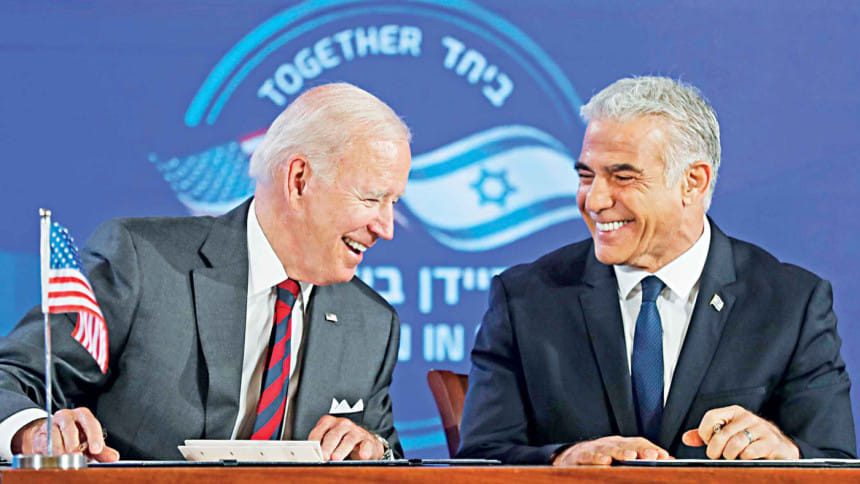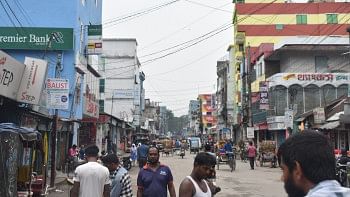US, India, Israel, UAE form ‘West Asian Quad’

The first meeting of heads of state and government of India, Israel, the United States and the United Arab Emirates (UAE) — dubbed the West Asian "Quad possibly see the announcement of a joint venture partnership on storage facilities for energy from renewables and another on the establishment of food corridors.
Also known as the "I2U2," the meeting held yesterday brought together the prime ministers of India and Israel (I2) – Narendra Modi and Yair Lapid — and the presidents of the US and the UAE (U2), Joe Biden and Mohammed bin Zayed al Nahyan.
The new alignment is set against the backdrop of economic and political risks in an increasingly uncertain world with high inflation, soaring food and fuel prices and a pandemic that upended established ways of doing business.
Joining the West Asia Quad is part of the "hedging" strategy adopted by a large number of countries, Talmiz Ahmed, former Indian ambassador to Saudi Arabia, Oman and the UAE, told Al Jazeera. "With the world in turmoil, no one knows what will work. So countries are hedging their bets" and joining and forming groups that they think will work best for them, Ahmed said.
The multilateral summit was convened in Jerusalem where Biden is on his first Middle East tour as president, with leaders from India and the UAE joining remotely.
During the summit the UAE announced it would invest 2 million euros (dollars) in agricultural projects in India, which will supply the land. Private firms from Israel and the US will be invited to also finance the scheme.
An Indian solar and wind energy project was also discussed in Jerusalem.
The I2U2 is aimed to "encourage joint investments" in six mutually identified areas such as water, energy, transportation, space, health, and food security, according to an Indian government statement on Tuesday.
It intends to mobilise private-sector capital and expertise to help modernise the infrastructure, develop clean energy for industries, improve public health, and promote the development of critical emerging and green technologies, the statement said, adding that the "projects can serve as a model for economic cooperation and offer opportunities for our businesspersons and workers".
Briefing reporters last month in Washington, DC, US State Department Spokesperson Ned Price had also underlined the economic agenda of the grouping.
"Each of these countries are technological hubs," he said while India was also "a massive market. It is a massive consumer market".
With a bilateral trade of $59bn, the UAE was already India's third-largest trading partner after China and the US for 2019-20, as per the latest government data.
India is also looking at concluding a free-trade pact with Israel, all of which is likely to give an additional boost to the regional Quad.
The I2U2 came together on the back of the momentum created by the Abraham Accords — brokered by the Trump administration two years ago to normalize ties between Israel and Arab countries including Bahrain, the UAE and Morocco.
India, along with US, Australia and Japan, is already part of the present Quad that came into place in 2017 against China, seen as belligerent in the Indo-Pacific region.

 For all latest news, follow The Daily Star's Google News channel.
For all latest news, follow The Daily Star's Google News channel. 



Comments